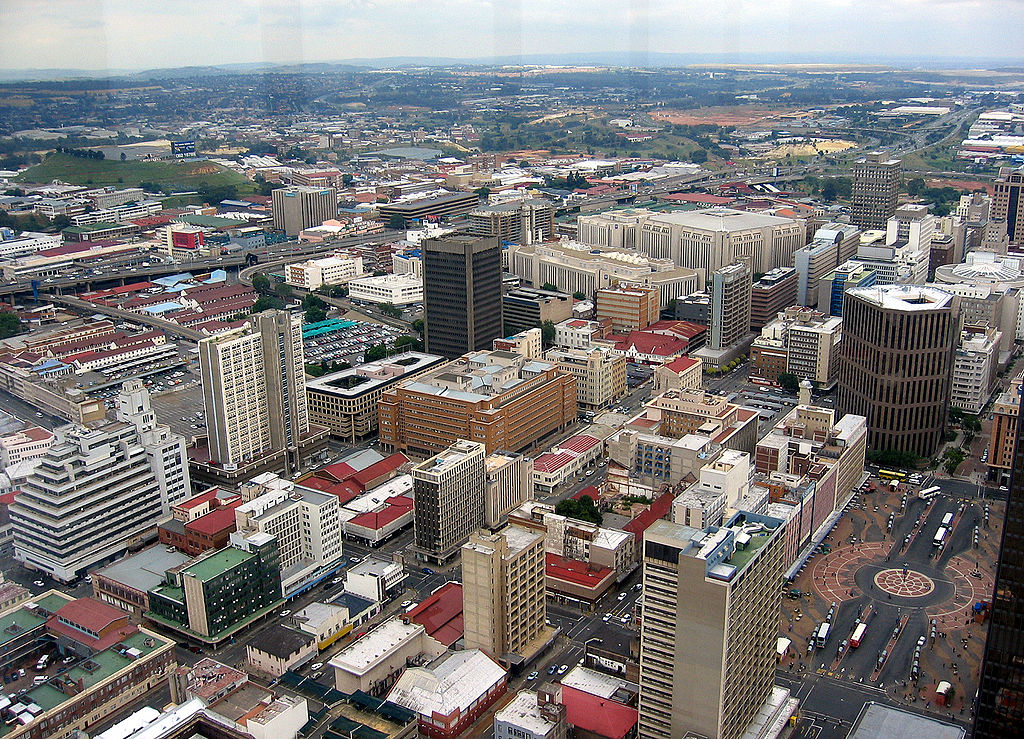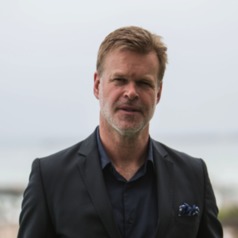Like the lemming that is about to throw itself off the proverbial cliff, South Africa appears unable to stop itself from preventing a self-inflicted act of such monumental folly that it could easily send Africa’s second biggest economy into a tailspin.
It has been a long time coming. Nevertheless the announcement that finance minister Pravin Gordhan had been summonsed to appear in court on charges of fraud and theft was still shocking. It prompted a sharp fall in the country’s currency and provoked dismay from market analysts, constitutional watchdogs and political commentators alike.
How things unfold in response to this dramatic event over the coming days will have a huge long-term impact. In turn this will reveal a great deal about the balance of power within the ruling African National Congress (ANC), the prospects of deputy president Cyril Ramaphosa succeeding Jacob Zuma as president of both the ANC and the country, increased political risk and socioeconomic uncertainty, and whether South Africa will be able to avoid a damaging rating agencies’ downgrade before the end of the year.
The announcement has been a long time coming because ever since Zuma was forced on 13 December last year to re-appoint Gordhan to the position he held in the cabinet between 2009-14, the president has been waging a cold war against his own finance minister.
Five days earlier Zuma had, without any warning, fired Nhlanhla Nene. He had taken this bold decision to clear the path for the “capture” of the National Treasury, which is widely viewed as the one part of government capable of standing up to attempts by Zuma and his cronies to push through disreputable deals and policies intended to enrich a small group of Zuma insiders at the expense of the national fiscus and the wider population.
This history and context is essential to understanding what is happening now.
Prosecution or persecution
In his budget speech in late February Gordhan drew a line in the stand, telling Zuma “no more”. He unveiled a package of reforms essential to South Africa avoiding a downgrade by rating agencies. Such a move would have a dramatically adverse impact on South Africa’s sluggish economy, its prospects for growth, inflation and the cost of borrowing. In short, on the living conditions of the country’s poorest citizens.
Zuma has fought back through loyal proxies such as General Mthandazo Berning Ntlemeza, the head of police’s elite unit, The Hawks, and now, it would seem, the National Director of Public Prosecutions, Shaun Abrahams. It was Abrahams who held a press conference to announce that Gordhan would be charged. This was notwithstanding the fact that Gordhan had been informed in May that he was not a suspect in the Hawks’ investigation and would in any case be given an opportunity to make representations should that situation change.
For seasoned observers, the detail of the charge sheet was revealing. Earlier in the year Gordhan had faced a list of 27 questions relating to the establishment of a so-called “rogue unit” within the South African Revenue Service a decade ago. Gordhan was at that time commissioner of the revenue body.
But the charges Gordhan now faces have nothing to do with the rogue unit. This is probably because there is no sound basis for them.
And the goalposts have also been moved in relation to the payment of R1m to former deputy commissioner Ivan Pillay. This is the cost to the revenue service of an early payout, which, by all accounts, is a common occurrence in the public sector.
The National Prosecuting Authority was clearly forced to scrabble around for a different legal basis for charging Gordhan and have come up with fraud and theft. These charges will require the state to prove several elements beyond reasonable doubt, making its prospects of success even less likely.
So less of a prosecution and more of a persecution. And an example of what is known as “selective prosecution”. What, then, will happen next?
The assumption is that no-one in the National Prosecurity Authority, including its head Abrahams, seriously believes that they have a sound case. But this does not matter since the primary, and perhaps only purpose, of the charges is to provide Zuma with the pretext to remove Gordhan regardless of the support he has received from a range of organisations and individuals. These include business leaders, civil society, parts of the ANC and its alliance supporters including the South African Communist Party and the ruling party’s own chief whip, Jackson Mthembu.
All eyes, therefore, are on Zuma. There is no doubt that he is brave and bold enough to fire Gordhan. He may do this in a desperate “last man standing” bid to ward off forces within the ANC that want him to go. The chorus of voices for a change at the top has grown stronger with recent calls from, among others, ANC stalwarts Sipho Pityana, Trevor Manuel and Barbara Hogan. Along with others they have formed a new organisation – Save South Africa – whose sole purpose is to persuade parliament, and the ANC majority within it, to remove their President.
Who will blink first?
How will the rest of the ANC leadership and Zuma’s cabinet react?
Attention will also be focused on ANC secretary general Gwede Mantashe, who has been consistently vocal in backing Gordhan, and even more so on Ramaphosa, the deputy president of the ANC and the country.
This is a crucial fork in the road moment. Who will blink first? Ramaphosa, backed by Mantashe, needs to abandon his overly prudential approach, and finally make a decisive move. He must insist that Gordhan stays and, if Zuma threatens to fire Gordhan or does so, then Ramaphosa should resign as a matter of principle.
As much as anything, this moment is a test of Ramaphosa’s own leadership. He had a chance to act last December. But he is increasingly viewed as a man who never misses an opportunity to miss an opportunity. It may be now or never for him and for the ANC moderate traditionalists and social democrats who began to find their voice when Nene was fired, but who are persistently out muscled by the venal nationalists on the right of the ruling party, with whom Zuma has increasingly aligned himself. He has done so by exploiting the “transformation” agenda to secure the fidelity of pliable placemen such as Hlaudi Motsoneng at the South African Broadcasting Authority, among others.
The implications for the ANC are profound; it faces its own acute dilemma. Act decisively and force Zuma from power, and it may tear the party apart. Fail to act, and allow him to continue his self-serving project of state capture, and the outcome may be the same, but with even more collateral damage as South Africa plunges into a Brazil-like tailspin caused by overlapping leadership and economic crises, stirred by a militant student movement.
The stakes have not been higher since the heady days of the early 1990s when South Africa also looked over the brink. Now it is less about brink and more about who will blink: Zuma, or Gordhan, or Abrahams or Ramaphosa. Which of these men will do the right thing and accept, or defend, the hard-won principles of constitutional democracy and public accountability that have been so sorely tested since Zuma came to power in 2009?
 Richard Calland is a founding partner of The Paternoster Group and Associate Professor at the University of Cape Town. He is author of "Make or Break: How The Next Three Years Will Shape South Africa’s next three Decades".
Richard Calland is a founding partner of The Paternoster Group and Associate Professor at the University of Cape Town. He is author of "Make or Break: How The Next Three Years Will Shape South Africa’s next three Decades".
This article was originally published on The Conversation. Read the original article.



 Japan Economy Poised for Q4 2025 Growth as Investment and Consumption Hold Firm
Japan Economy Poised for Q4 2025 Growth as Investment and Consumption Hold Firm  South Korea Assures U.S. on Trade Deal Commitments Amid Tariff Concerns
South Korea Assures U.S. on Trade Deal Commitments Amid Tariff Concerns  Oil Prices Slide on US-Iran Talks, Dollar Strength and Profit-Taking Pressure
Oil Prices Slide on US-Iran Talks, Dollar Strength and Profit-Taking Pressure  Trump’s Inflation Claims Clash With Voters’ Cost-of-Living Reality
Trump’s Inflation Claims Clash With Voters’ Cost-of-Living Reality  Trump Signs “America First Arms Transfer Strategy” to Prioritize U.S. Weapons Sales
Trump Signs “America First Arms Transfer Strategy” to Prioritize U.S. Weapons Sales  TrumpRx.gov Highlights GLP-1 Drug Discounts but Offers Limited Savings for Most Americans
TrumpRx.gov Highlights GLP-1 Drug Discounts but Offers Limited Savings for Most Americans  U.S. to Begin Paying UN Dues as Financial Crisis Spurs Push for Reforms
U.S. to Begin Paying UN Dues as Financial Crisis Spurs Push for Reforms  Jack Lang Resigns as Head of Arab World Institute Amid Epstein Controversy
Jack Lang Resigns as Head of Arab World Institute Amid Epstein Controversy  Federal Judge Restores Funding for Gateway Rail Tunnel Project
Federal Judge Restores Funding for Gateway Rail Tunnel Project  U.S. Lawmakers to Review Unredacted Jeffrey Epstein DOJ Files Starting Monday
U.S. Lawmakers to Review Unredacted Jeffrey Epstein DOJ Files Starting Monday  U.S.-India Trade Framework Signals Major Shift in Tariffs, Energy, and Supply Chains
U.S.-India Trade Framework Signals Major Shift in Tariffs, Energy, and Supply Chains  Trump Lifts 25% Tariff on Indian Goods in Strategic U.S.–India Trade and Energy Deal
Trump Lifts 25% Tariff on Indian Goods in Strategic U.S.–India Trade and Energy Deal  Global Markets Slide as AI, Crypto, and Precious Metals Face Heightened Volatility
Global Markets Slide as AI, Crypto, and Precious Metals Face Heightened Volatility  Gold Prices Slide Below $5,000 as Strong Dollar and Central Bank Outlook Weigh on Metals
Gold Prices Slide Below $5,000 as Strong Dollar and Central Bank Outlook Weigh on Metals 

































